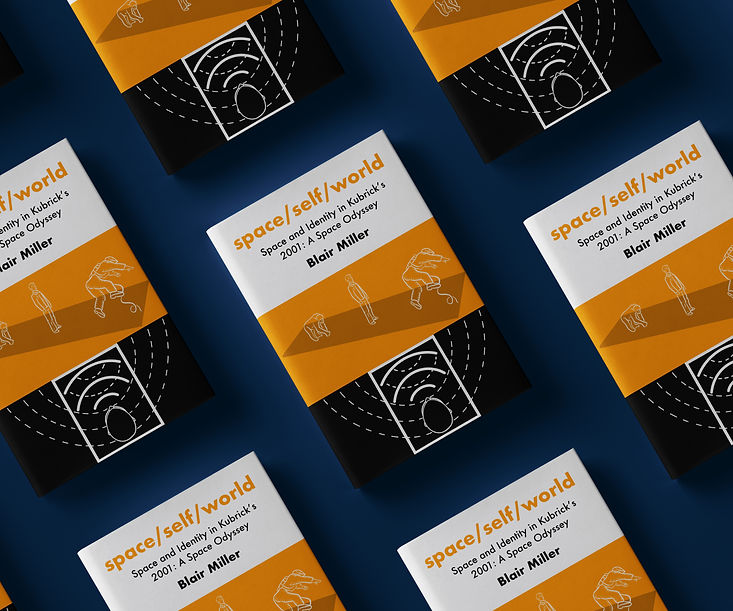

Blair Miller is a brilliant emerging scholar who has critically engaged Stanley Kubrick's masterpiece 2001 and provided an illuminating and challenging reading. Focusing on the categories of space, self, world, and identity in Kubrick's space odyssey, Miller provides a critical and philosophical reading that will challenge us to see Kubrick's complex film as a text that expands our philosophical vistas and visions of the universe. I strongly recommend this original and ground-breaking work.
Douglas Kellner, Philosophy of Education Chair, Graduate School of Education & Information Studies, UCLA
Using perhaps the most famous science fiction film ever made, what does it mean that we are determined by space? That the human individual was created by controlling its spatial environment(s)? Complicating matters further, that same control that defines us limits our understanding and the spaces themselves, to the extent that the individual itself is under command. space/self/world is a critical examination of a certain philosophical approach to space via Stanley Kubrick’s 2001: A Space Odyssey. As bookends to a chronology of the human self—specifically its spatial relationship(s)—that encompasses Kubrick’s whole body of work, 2001 provides an account of human existence from “beginning” to “end.” That existence is deeply informed by spatial negotiations involving all people and things. Theodor Adorno’s essay “Odysseus or Myth and Enlightenment” explains how the modern self (and reason) came to be, in terms of power relationships and self-domination. Seen together, the film and theories articulated by the Frankfurt School icon give an account of spatial identities that, when brought up against theories of acoustic space put forth by communications theorists Marshall McLuhan and J. Macgregor Wise, demonstrate human identity as largely the outcome of spatial negotiations that have resulted in instrumentalization of spaces, and, in turn, ourselves. This book travels 2001’s narrative arc, critically analyzing it by providing a nuanced—at times abstract and metaphorical—account of space, instrumentalization, and power relationships that all intersect as building blocks of the contemporary self. Originally written 15 years ago, its concepts and concerns are as apt and urgent as ever.
Blair Miller turns a timely analysis of Stanley Kubrick’s 2001: A Space Odyssey into an exploration of the ways human beings respond to the spaces they confront and inhabit, which itself turns on the question of whether we can respond in more reciprocal, less destructive ways to the spaces in and through which we make sense of our selves.
Nikolas Kompridis, Author of Critique and Disclosure: Critical Theory between Past and Future

Blair Miller has a MA in Film from York University and an Hon. BA in Philosophy from Wilfrid Laurier University. He is currently contract faculty at York University. He is also co-editor of Young People and Social Media: Contemporary Children’s Digital Culture (Vernon Press, 2021).